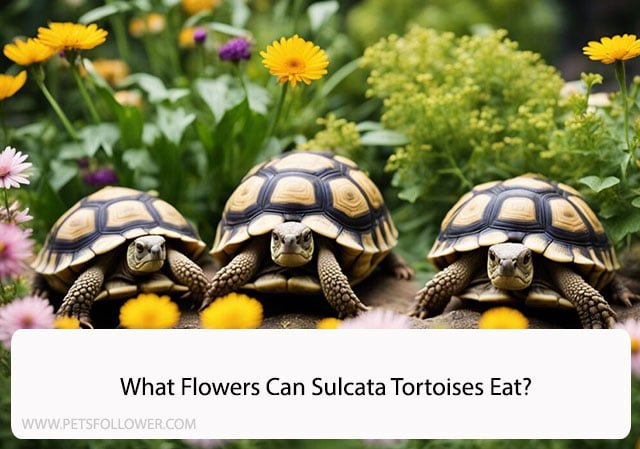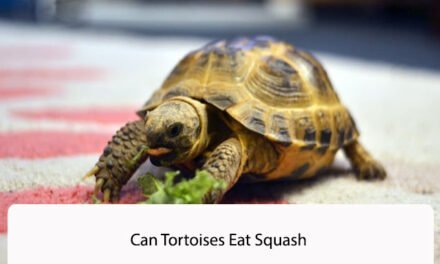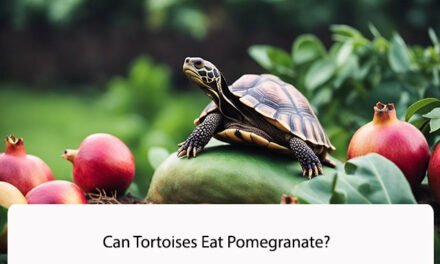Sulcata tortoises are herbivores and require a diet that is high in fiber and low in protein. While their diet primarily consists of grasses and weeds, they can also eat certain types of flowers. However, it’s important to know which flowers are safe for them to consume.
One type of flower that sulcata tortoises can eat is the hibiscus. This flower is high in fiber and low in protein, making it a great addition to their diet. Hibiscus flowers come in a variety of colors and can be found in most garden centers or nurseries.
Another flower that is safe for sulcata tortoises to eat is the dandelion. Dandelions are a common weed that can be found in most yards. They are high in fiber and vitamins, making them a healthy option for your tortoise. Just make sure that the dandelions haven’t been treated with any pesticides or chemicals before feeding them to your pet.
Understanding Sulcata Tortoises
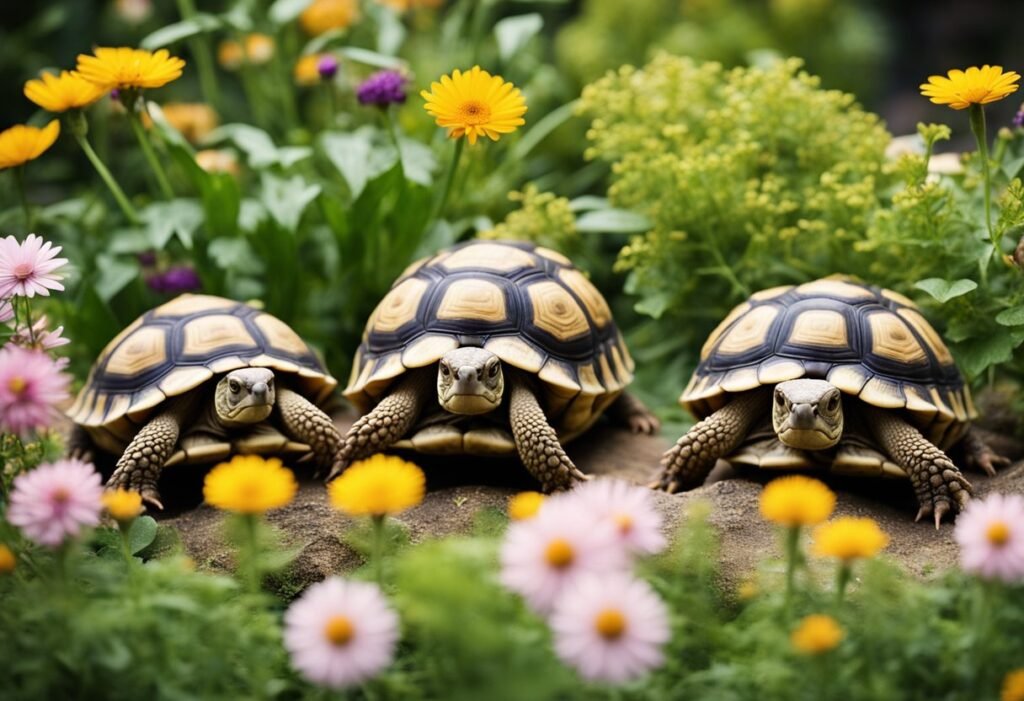
Sulcata tortoises are one of the largest species of tortoises in the world. They are native to the Sahara Desert in North Africa and can live up to 100 years. These tortoises are herbivores, which means they only eat plants.
Sulcata tortoises have a high fiber requirement and should be fed a diet that is low in protein and high in fiber. Feeding them a diet that is too high in protein can lead to health problems such as shell deformities and kidney disease.
It is important to provide sulcata tortoises with a variety of plants to ensure they receive all the necessary nutrients. Some good options include grasses, leafy greens, and vegetables such as carrots and squash.
It is also important to avoid feeding sulcata tortoises plants that are toxic to them. Some common plants that are toxic to sulcata tortoises include avocado, rhubarb, and tomato leaves.
In addition to a proper diet, sulcata tortoises require access to clean water and a warm, dry environment. They are sensitive to cold temperatures and should be kept in an environment that is at least 80 degrees Fahrenheit.
Overall, it is important to do proper research and consult with a veterinarian to ensure that your sulcata tortoise is receiving a healthy and balanced diet.
Dietary Needs of Sulcata Tortoises
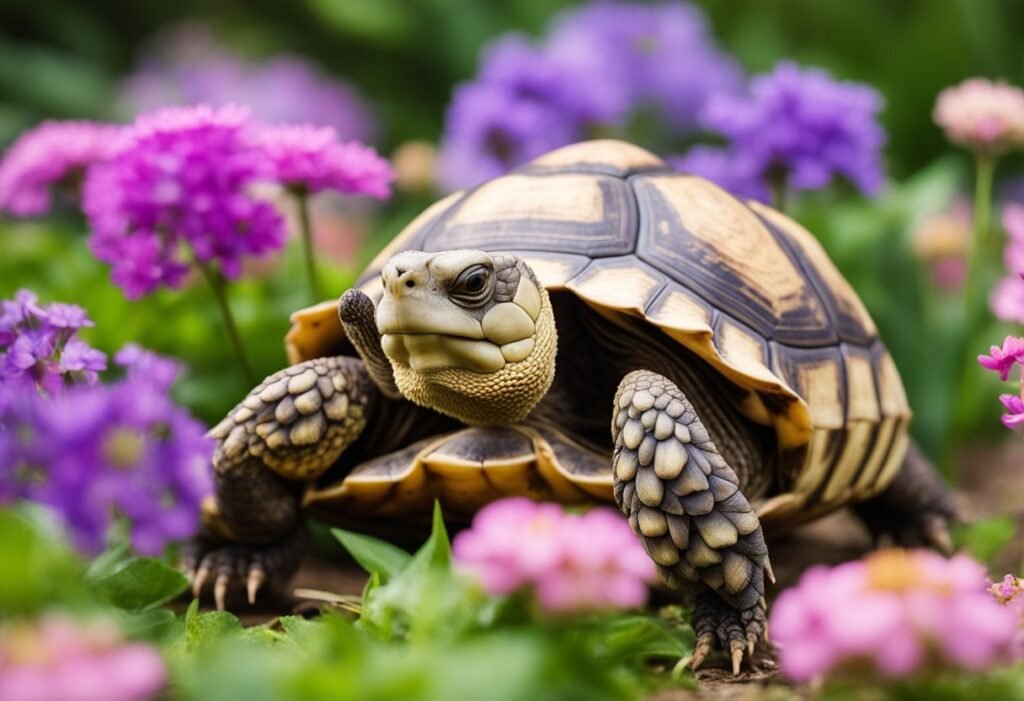
Sulcata tortoises are herbivores and require a diet that is high in fiber and low in protein. In their natural habitat, they feed on a variety of plants, including grasses, weeds, and succulents. As pets, it is important to provide them with a similar diet to ensure their health and well-being.
We recommend feeding your sulcata tortoise a variety of leafy greens, such as kale, collard greens, and dandelion greens. You can also offer them vegetables like carrots, squash, and bell peppers. Fruits like strawberries, apples, and bananas can be given as a treat, but should not make up a significant portion of their diet.
It is important to avoid feeding your sulcata tortoise foods that are high in protein, like meat, dairy, and insects. These foods can cause health problems for your tortoise, including shell deformities and kidney damage.
In addition to providing a varied diet, it is important to ensure that your sulcata tortoise has access to clean water at all times. You can also provide them with a calcium supplement to ensure that they are getting enough of this essential nutrient.
By providing your sulcata tortoise with a balanced diet and proper care, you can help them live a happy and healthy life.
Safe Flowers for Sulcata Tortoises
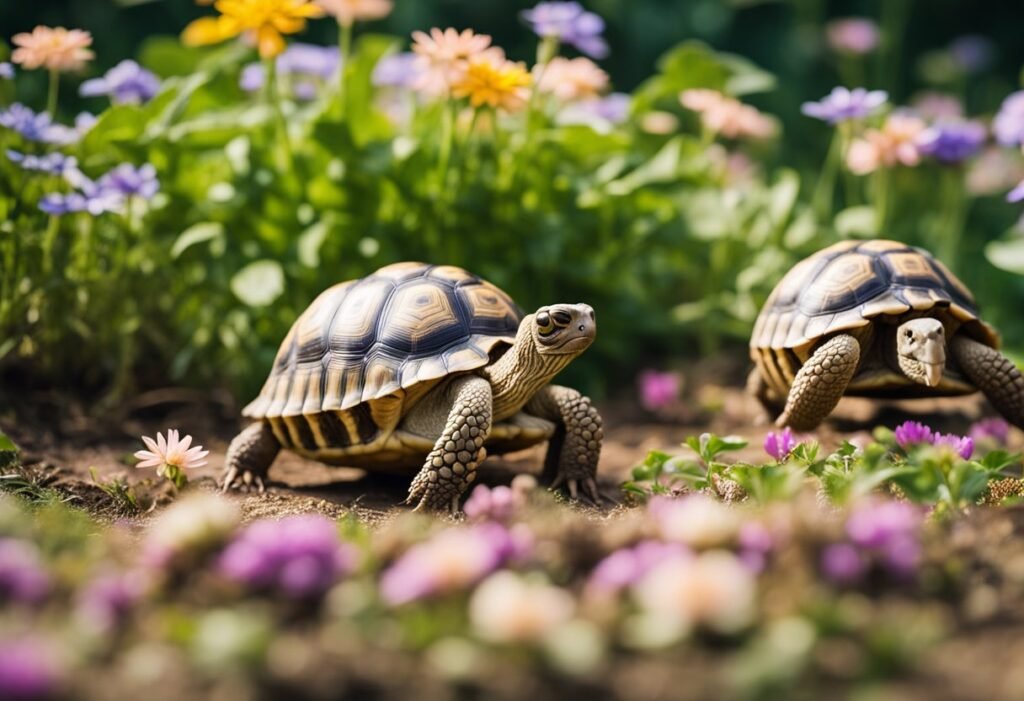
When it comes to feeding your sulcata tortoise, it is important to ensure that they are getting a balanced diet that meets their nutritional needs. While they primarily feed on grasses and weeds, they can also eat certain flowers in moderation. In this section, we will discuss some safe flowers for sulcata tortoises.
Hibiscus
Hibiscus flowers are safe for sulcata tortoises to eat and are a good source of vitamin C. They can be fed to your tortoise in moderation, as part of a balanced diet. However, it is important to note that hibiscus flowers are high in oxalic acid, which can bind to calcium and prevent its absorption. Therefore, it is important to not overfeed your tortoise with hibiscus flowers.
Dandelions
Dandelions are a great addition to your sulcata tortoise’s diet. They are high in calcium and other nutrients that are important for your tortoise’s health. You can feed your tortoise both the flowers and leaves of the dandelion plant. However, it is important to ensure that the dandelions are free from pesticides and other harmful chemicals.
Roses
Roses are safe for sulcata tortoises to eat and can be a good source of vitamin C. You can feed your tortoise both the petals and leaves of the rose plant. However, it is important to remove the thorns before feeding them to your tortoise.
Nasturtiums
Nasturtiums are safe for sulcata tortoises to eat and can be a good source of vitamin C. You can feed your tortoise both the flowers and leaves of the nasturtium plant. However, it is important to note that nasturtiums are high in oxalic acid, which can bind to calcium and prevent its absorption. Therefore, it is important to not overfeed your tortoise with nasturtiums.
In conclusion, while there are many flowers that are safe for sulcata tortoises to eat, it is important to ensure that they are getting a balanced diet that meets their nutritional needs. Always research and consult with a veterinarian before introducing new foods to your tortoise’s diet.
Unsafe Flowers for Sulcata Tortoises
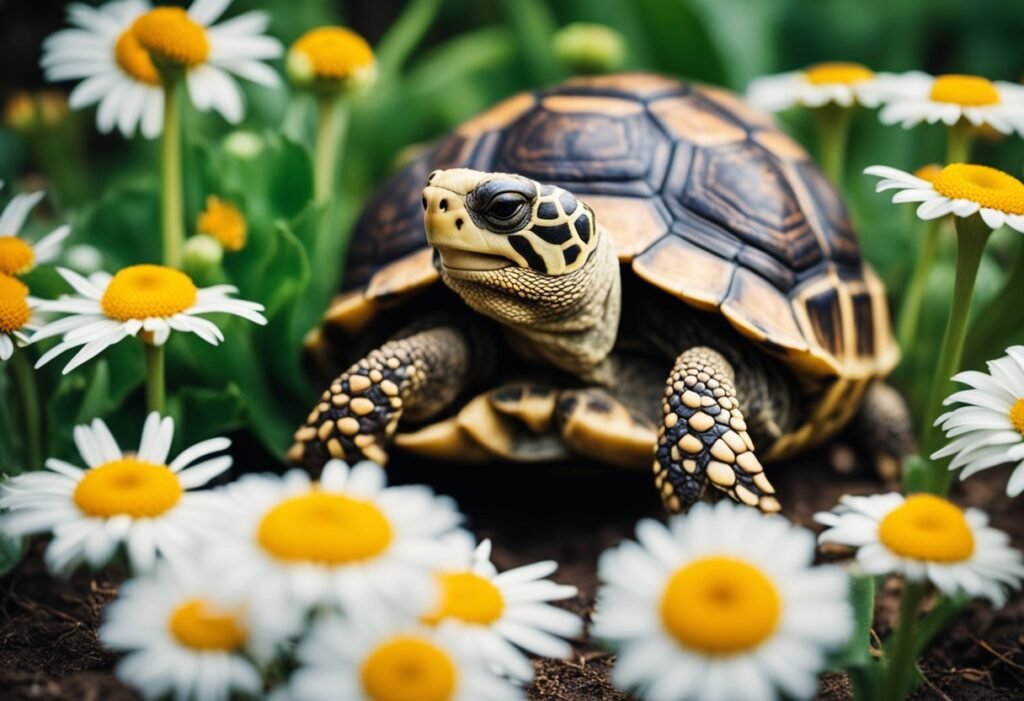
As we mentioned earlier, not all flowers are safe for Sulcata Tortoises to eat. In fact, some flowers can be toxic and even deadly. Here are a few flowers that you should avoid feeding your Sulcata Tortoise:
Azaleas
Azaleas contain grayanotoxins, which can cause vomiting, diarrhea, and even death in Sulcata Tortoises. Even a small amount of azalea can be lethal, so it’s best to avoid feeding them to your pet altogether.
Lilies
Lilies are also toxic to Sulcata Tortoises. They contain a substance called colchicine, which can cause vomiting, diarrhea, and other digestive problems. In severe cases, lilies can even cause kidney failure.
Tulips
Tulips contain a toxic substance called tulipalin, which can cause gastrointestinal irritation, drooling, and even convulsions in Sulcata Tortoises. It’s best to avoid feeding your pet tulips altogether.
Daffodils
Daffodils contain lycorine, which can cause vomiting, diarrhea, and even heart problems in Sulcata Tortoises. In severe cases, daffodils can even cause death. It’s best to avoid feeding your pet daffodils altogether.
Remember, it’s important to research any flowers or plants before feeding them to your Sulcata Tortoise. When in doubt, it’s always best to err on the side of caution and avoid feeding your pet any potentially toxic plants or flowers.
Feeding Techniques
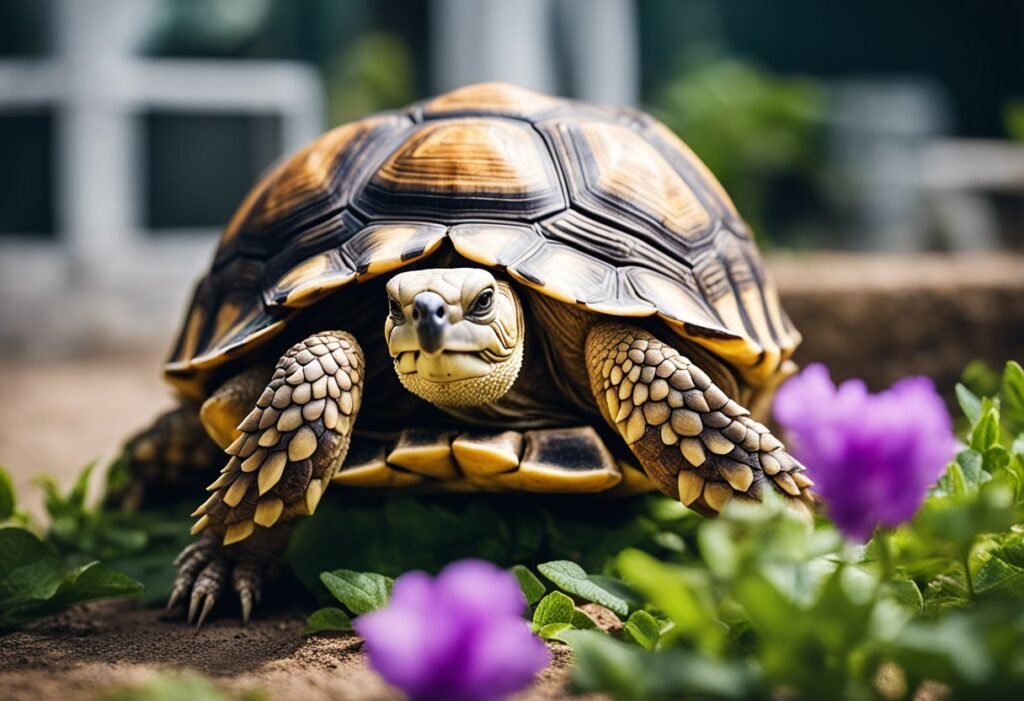
When feeding sulcata tortoises, there are a few techniques to keep in mind to ensure they are getting the proper nutrition. Here are some tips:
- Offer a variety of flowers and other plants to ensure a balanced diet.
- Avoid feeding them plants that are high in oxalates, such as spinach and rhubarb, as these can bind to calcium and prevent it from being absorbed.
- Provide a calcium supplement to help prevent metabolic bone disease.
- Offer a shallow dish of water for drinking and soaking.
- Remove any uneaten food to prevent spoilage and bacterial growth.
It’s important to remember that while flowers can be a great addition to a sulcata tortoise’s diet, they should not make up the majority of their food intake. A balanced diet should consist of a variety of plants, including grasses, weeds, and vegetables.
Here are some flowers that are safe for sulcata tortoises to eat:
| Flower | Notes |
|---|---|
| Hibiscus | High in vitamin C and antioxidants |
| Rose | High in vitamin C |
| Dandelion | High in calcium and vitamin A |
| Marigold | High in antioxidants |
| Petunia | High in vitamin C |
| Zinnia | High in vitamin C |
Remember to always research any new plants before feeding them to your tortoise to ensure they are safe and nutritious.
Monitor Health After Eating
It’s important to monitor your sulcata tortoise’s health after feeding them any new types of flowers. While many flowers are safe for them to eat, some may cause digestive issues or other health problems.
One way to monitor their health is by observing their behavior and appetite. If they seem lethargic or refuse to eat, it may be a sign of digestive issues. In this case, it’s best to remove the flowers from their diet and consult with a veterinarian if the problem persists.
Another way to monitor their health is by examining their feces. If you notice any abnormalities, such as diarrhea or undigested plant matter, it may be a sign that the flowers are not agreeing with their digestive system.
It’s also important to note that even safe flowers should be fed in moderation. Overfeeding can lead to obesity and other health problems.
Overall, monitoring your sulcata tortoise’s health after feeding them flowers is crucial for their well-being. By observing their behavior, appetite, and feces, you can ensure that they are getting the proper nutrition without any negative side effects.
Conclusion
In conclusion, Sulcata tortoises are herbivores and require a diet rich in fiber, calcium, and other essential nutrients. While they can eat a variety of flowers, not all flowers are safe for them to consume. Some flowers can be toxic and cause harm to the tortoise.
It is important to research and identify the flowers that are safe for Sulcata tortoises to eat. We have provided a list of flowers that are safe for them to consume, including hibiscus, roses, pansies, and marigolds.
It is also important to note that flowers should not be the only source of food for Sulcata tortoises. They should have a well-balanced diet that includes a variety of vegetables, fruits, and other plant materials.
By providing a balanced diet and ensuring that the flowers they consume are safe, we can help to ensure the health and well-being of our Sulcata tortoises.
Frequently Asked Questions

Can sulcata tortoises eat lavender?
No, sulcata tortoises should not eat lavender. Lavender is not a part of their natural diet and can be harmful to them.
What flowers can hermann tortoises eat?
Hermann tortoises can eat a variety of flowers, including hibiscus, nasturtiums, and pansies. However, it is important to make sure that the flowers are free from pesticides and other harmful chemicals.
Can tortoises eat zinnias?
Yes, tortoises can eat zinnias. Zinnias are safe for tortoises to consume in moderation as part of a balanced diet.
Can tortoises eat bougainvillea?
No, tortoises should not eat bougainvillea. Bougainvillea contains toxins that can be harmful to tortoises and should be avoided.
What flowers are poisonous to sulcata tortoises?
Sulcata tortoises should not consume flowers that are toxic to them, such as daffodils, lilies, and tulips. These flowers can cause digestive issues and other health problems.
Can sulcata tortoises eat daisies?
No, sulcata tortoises should not eat daisies. Daisies are not a part of their natural diet and can be harmful to them if consumed.

